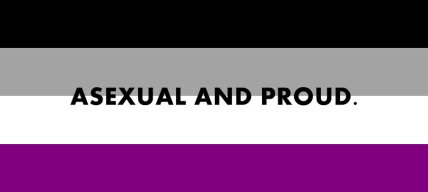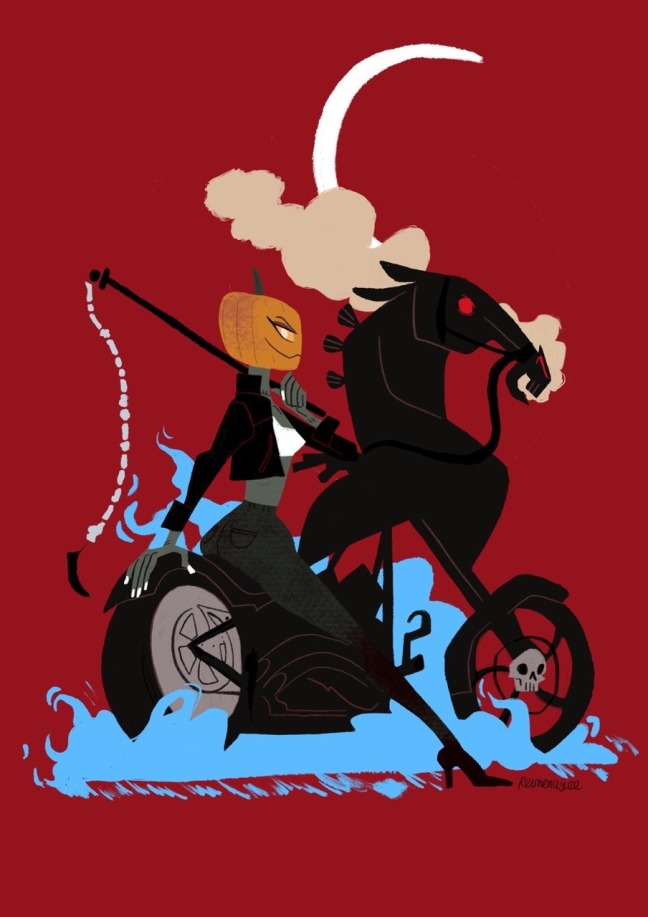Today we’re joined by Juju. Juju is a wonderful writer who is mostly known for their fanfiction. Aside from fanfiction, they also write some original fiction and are currently working on a novel. Juju includes aspec characters in everything they write. It’s clear they’re a dedicated and passionate writer who loves what they do, as you’ll soon read. My thanks to them for taking the time to participate in this interview.

WORK
Please, tell us about your art.
I write things! Most of my readers know me for fanfiction, but I also write short stories and I’m working on a novel! I also like to share stories through little video games made in RPG Maker, although I don’t often share them as much as I probably should.
What inspires you?
At the risk of sounding like an overenthusiastic alien, humanity itself is my greatest inspiration. Humans are utterly fascinating.
We have the power to wage war, and also help each other in times of need. We spend years learning each other’s languages just to communicate with people outside of our own circle. We all share the same range of emotions. We can communicate through looks without saying a word to each other; even a smile is something we can share, if we have nothing else in common.
Our experiences are diverse and universal at the same time. The relationships we have with each other—parents, lovers, siblings, friends, workmates, etc.—are varied, but when you put it all together you have the story of a life. It’s my privilege as an author to take a slice of a life, any character’s life, and portray it for the world.
What got you interested in your field? Have you always wanted to be an artist?
I’ve been writing stories ever since I learned what letters were. I used to write little stories for my younger brother on notebook paper, lying on the floor in my bedroom. It didn’t matter that he couldn’t read them; I read them to him! In elementary school when they taught us the writing assessment, I used to pray that I’d get a narrative prompt (sadly, I never did).
Do you have any kind of special or unique signature, symbol, or feature you include in your work that you’d be willing to reveal?
Unique feature? That’s a hard one… I have a terrible time recognizing themes in my work; usually other people point them out to me and I just accept that they must be right, haha.
I guess I can say I do enjoy writing about belonging; I like to do character analyses in my work in the form of introspection. I also really enjoy writing sibling relationships, especially if it’s found family and siblings. I love ships as much as the next fan, but there’s something about “they’re like a brother/sister to me”. That’s a deep platonic love that never gets as much recognition as it deserves.
What advice would you give young aspiring artists?
Make the content you want to see in the world. Who cares if it’s entirely self-indulgent? If it makes you happy, do it! Do it, do it again, read it and enjoy it; the best part is that sometimes, other people will like it too!
Practice doesn’t have to be boring. How do I practice writing? I read books. I watch movies.. I look at screenplays. I go to the theatre, if I can. I play video games. I study the plot, the dialogue. Look at your favorite stories—why do you like them? What’s your favorite part? How do the character interact? Of course, grammar is important and the fundamentals are there for a reason, but no one said practice had to be all textbooks and essays.
ASEXUALITY
Where on the spectrum do you identify?
I’m asexual! I find men and women both aesthetically pleasing, but I don’t experience sexual attraction to them.
When I first learned the terminology I thought I might be gray-ace or demi, but I realized that I was only tying into some of the myths surrounding asexuality. I was letting people who didn’t know me tell me who I was, based on generalizations. It wasn’t until I asked myself who I thought I was that I was able to come to terms with my own sexuality.
I also identify as heteroromantic, or at least gray-romantic to some extent.
Have you encountered any kind of ace prejudice or ignorance in your field? If so, how do you handle it?
Oh, for sure!
I think what I’ve heard the most is that I’m “faking” being an asexual because I write nsfw content. That’s also the most laughable, since I never realized you could only write about your own experience and nothing else! I’m openly sex-positive; sex is a beautiful, intimate thing… it’s just not for me.
I’ve also gotten anon hate on social media from people who don’t like my headcanons, especially if they’re on the ace spectrum. If it’s a LGBT ship it’s homophobic to have them as ace, if it’s a straight ship it’s too pandering. Can’t win for losing, right? Beyond that, it’s usually the same old “asexuality isn’t LGBT, you aren’t oppressed, make your own community” garbáge that exists all over social media (mostly Tumblr).
It always hurts the worst when it comes from mutuals that I trusted; sometimes people I considered my friends share or say aphobic things and I want to shout “Don’t reblog those lies! Ask me, I’m right here, I’m always willing to talk about my own experience with you!” But, if I said those things, 9/10 times I’m accused of stirring up discourse or being too defensive.
I learned long ago to keep my mouth shut, write what I want, and freely use the Block feature. Life’s too short to worry about what some faceless person on the internet thinks about me, and besides: probably they’d be too cowardly to say those hurtful comments if we were in the same room together.
What’s the most common misconception about asexuality that you’ve encountered?
“Asexuals hate sex and look down on people who don’t.”
I know aces who are sex-repulsed. I know aces who are married with kids. I know aces who are fine with giving, not receiving. I know aces who only dislike intercourse. I know aces who have sex because, for them, it’s a way to be close to their partner.
Sex positive, negative, neutral— we all share one important thing: we don’t experience sexual attraction. That is what makes us asexual… not our opinions.
What advice would you give to any asexual individuals out there who might be struggling with their orientation?
It’s okay to be asexual.
If you think you’re 1% ace today and 99% ace tomorrow, you can say you’re ace. If you’re not sure yet, you can say you’re ace. If you think you might change your mind, or you’re using this label until you figure yourself out, you can say you’re ace.
Sexuality is fluid and confusing, and it’s even more confusing if you don’t experience it at all. We’ve been there. We are there. We know. The people with the loudest voices and biggest hatred are often the minority. Don’t believe everything you read on the internet.
Remember to love, and allow yourself to be loved. Love isn’t binary, it’s not limited to intimacy or romance. Love your friends, your family, your pets, and (most importantly) yourself. Love is so many shades, a thousand thousand nuances that we can experience together as humans. Don’t lose hope by focusing on one color when you’re surrounded by a rainbow.
Having sex doesn’t make you less ace. Being in a relationship doesn’t make you less ace. Wanting to be closer to your partner doesn’t make you less ace. Wanting children doesn’t make you less ace. You are allowed to ask for physical affection without it having to lead to sex. You are allowed to want to kiss, to cuddle, even to make out or pet your partner without it having to lead to sex. You do not have to do anything you are uncomfortable with. You don’t owe the world, or anyone in it, anything that will bring you harm.
You are not broken. You are valid. You are loved.
Finally, where can people find out more about your work?
You can find my work at https://archiveofourown.org/users/Jubalii! Just look for the sheep, haha! I’m also on Tumblr at https://heyheyitsjuju.tumblr.com/. On Tumblr I post fanfiction as well as more about my original stories, OCs, etc.
Thank you, Juju, for participating in this interview and this project. It’s very much appreciated.
























